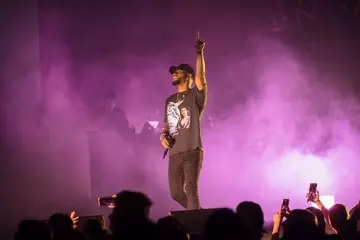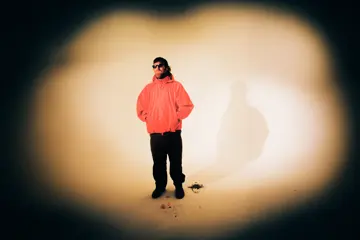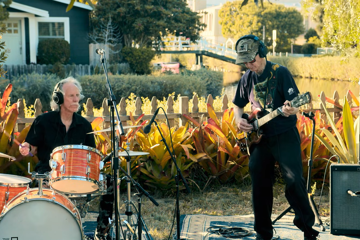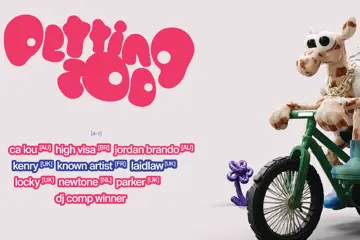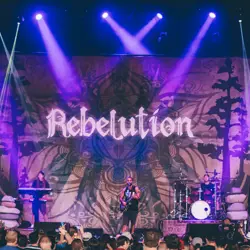 RebelutionYou’d think with a first name like Marley, reggae was the inevitable career path for Rebelution bass player Marley D Williams, but it seems baseball was his initial interest.
RebelutionYou’d think with a first name like Marley, reggae was the inevitable career path for Rebelution bass player Marley D Williams, but it seems baseball was his initial interest.
“Yeah, it’s one of those things, a long time ago I was pretty upset about it,” Williams admits of dropping baseball, “but there are hidden blessings everywhere, you know? I had a bass but didn’t really play it that much – it was mostly in its case in the closet – but whenever I did I always wanted to play a Bob Marley bass line or a Sublime bass line, and for all the people thinking of picking up bass I highly recommend reggae. It’s really fun because you’re a lead melody in the song. There’s nothing like a big, fat reggae bass line to hook down and make people dance.”
It was hearing roots reggae coming out of the room of a fellow student in the Santa Barbara college town of Isla Vista in 2004, however, that clinched it for Williams. That student was singer-songwriter Eric Rachmany, and their common interest in reggae and, in particular, the music of Don Carlos and Black Uhuru, led to their forming Rebelution with fellow students keyboards player Rory Carey and drummer Wesley Finley.
"There’s nothing like a big, fat reggae bass line to hook down and make people dance.”
“Eric is the man, and I think we all recognised that a long time ago,” Williams concedes. “He’s a very, very gifted musician, and he represents us, you know? What he says, we feel like he’s our voice – he’s our Michael Jordan! Eric’s a really special dude. I think he’s got one of those old souls. He’s very grounded and balanced. It’s really an honour to have him as a frontman and as our voice.”
As is the case in Australia, reggae in America remains very much a niche genre, but within those limitations, Rebelution managed to break out pretty quickly, albeit initially in that nation’s 50th and newest state, Hawaii, where their debut indie EP became a radio hit, prompting a tour that saw them playing to 600 fans all singing along, much to the band’s surprise. Ten years on, their fourth album, 2014’s Count Me In, was their third consecutive #1 album in the Billboard Top Reggae Albums chart.
Don't miss a beat with our FREE daily newsletter
“It’s just kind of gradually happened,” Williams admits. “It’s rare for reggae bands to do big ticket sales or album sales in America. Without Hawaii, I don’t think we would have gotten that kind of push-start, if you will. I guess it’s something about the ocean and island music.
“It’s funny – the universe or God or whoever is putting things together, the timing of us all meeting, going to school together – we kind of felt like we’ve all been on the same level this whole time, for ten years, since we first did our backyard show covering songs. And I think that’s really a big reason why – there are a lot of big reasons why – Rebelution has got where it is. That kind of timing you can’t just plan and ask for and force; it’s something that happens naturally.”

